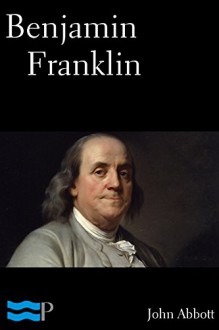About the year 1685, Josiah Franklin, with his wife and three children, emigrated from Banbury, England, to seek his fortune in this new world. He was in all respects a very worthy man, intelligent, industrious, and influenced to conduct by high moral and religious principles. Several of Josiah...
show more
About the year 1685, Josiah Franklin, with his wife and three children, emigrated from Banbury, England, to seek his fortune in this new world. He was in all respects a very worthy man, intelligent, industrious, and influenced to conduct by high moral and religious principles. Several of Josiah Franklin’s neighbors accompanied him in his removal.Boston was then a straggling village, of five or six thousand inhabitants. In front spread out its magnificent bay, with its beautiful islands. In the rear the primeval forest extended, almost unbroken, through unexplored wilds to the Pacific. His trade was that of a dyer. Finding, however, but little employment in that business, he set up as a tallow chandler and soap boiler. Four years of life’s usual joys and sorrows passed away when Mrs. Franklin died, leaving six children. The eldest was but eleven years of age. This motherless little family needed a maternal guardian. Within the year, Mr. Franklin married Abiah Folger, of Nantucket. She was the youngest daughter of Peter Folger, a man illustrious for many virtues, and of whom it has been well said, that “he was worthy to be the grandfather of Benjamin Franklin.” She proved to be a noble woman, and was all that either husband or children could wish for. Ten children were the fruit of this union. Benjamin was born on the sixth of January, (O. S.) 1706.He was born in the morning of a Sabbath day. His father then resided directly opposite the Old South Church, in Milk street. The same day, the babe, whose renown it was then little imagined would subsequently fill the civilized world, was wrapped in blankets, and carried by his father across the street through the wintry air, to the Old South Church, where he was baptized by the Rev. Dr. Willard. He was named Benjamin, after a much beloved uncle then residing in England. This uncle was a man of some property, of decided literary tastes, and of the simple, fervent piety, which characterized the best people of those days. He took an ever increasing interest in Benjamin. He eventually came over to this country, and exerted a powerful influence in moulding the character of his nephew, whose brilliant intellect he appreciated.
show less

